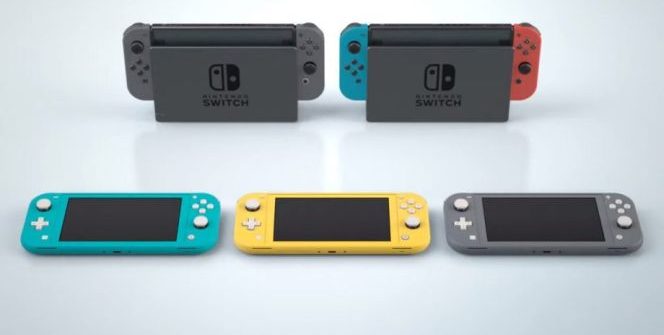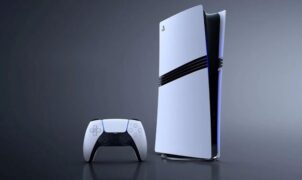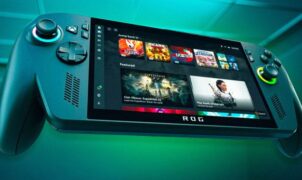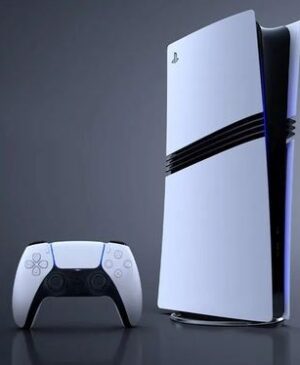Nintendo’s newest fiscal earnings report includes new details about the Nintendo Switch‘s sales performance.
By March 31, a total of 55.77 million Nintendo Switch units were sold in its slightly more than a three-year lifetime (including the Switch Lite models!). That is an excellent result. For these units, more than 356.27 million Switch games were sold. In average, for one Switch, we bought 6.3 games. With this result, Nintendo has surpassed its expectations: for the previous fiscal year (April 2019-March 2020), they wanted to sell 19.5 million Switch units, but they achieved 21.03 million. Not bad. However, the current fiscal year’s targets are 19 million sold Switch units (-9.6%), and 140 million sold games (-17%). They are toning down their expectations.
Let’s see the top ten best-selling first-party (Nintendo Switch-exclusive) games:
- Mario Kart 8 Deluxe – 24.77 million
- Super Smash Bros. Ultimate – 18.84 million
- The Legend of Zelda: Breath of the Wild – 17.41 million
- Super Mario Odyssey – 17.41 million
- Pokemon Sword / Pokemon Shield – 17.37 million
- Pokemon: Let’s Go, Pikachu! / Pokemon: Let’s Go, Eevee! – 11.97 million
- Animal Crossing: New Horizons – 11.77 million (first 11 days – March 20-31, this is the first official sales figure for this game) / 13.41 million (first six weeks – this result clearly shows this game will be a killer app)
- Splatoon 2 – 10.13 million
- Super Mario Party – 10.10 million
- New Super Mario Bros. U Deluxe – 6.60 million
Here are a few more sales numbers, including Pokemon Mystery Dungeon: Rescue Team DX, which got its first sales data:
- Luigi’s Mansion 3 – 6.33 million
- Super Mario Maker 2 – 5.48 million
- The Legend of Zelda: Link’s Awakening – 4.38 million
- Fire Emblem: Three Houses – 2.87 million
- Ring Fit Adventure – 2.73 million
- Pokemon Mystery Dungeon: Rescue Team DX – 1.26 million
- Astral Chain – 1.08 million
- Marvel Ultimate Alliance 3: The Black Order – 1.08 million
For the new fiscal year, Nintendo is forecasting revenues down 8.3% to ¥1.2 trillion ($11.26 billion), with net profits down 22.7% to ¥200 billion ($1.88 billion). One of the potential reasons behind their held-back forecasts is the release slate, which will not be as strong as the year before (plus the coronavirus pandemic might have caused some delays due to working remotely/from home).
The current fiscal year has Xenoblade Chronicles Definitive Edition and Clubhouse Games: 51 Worldwide Classics, while Animal Crossing, Pokémon Sword and Shield, and Super Smash Bros. Ultimate will get ongoing updates and DLC. That’s not much, let’s face it.
Nintendo says delays in production and shipping of the Switch are „gradually recovering,” but they added that a prolonged or worsened pandemic could still disrupt the supply chain enough to hurt production. They are uncertain about their first-party and external (third-party) games as well – they might all see some delays because the devs had to switch to the home office solution.
„There are restrictions on sales channels in each country due to measures to prevent the spread of the virus including restrictions on movement outside the home and closure of retail stores, and this effect may be prolonged. Also, if the physical distribution is suspended, we will not be able to sell hardware or packaged software through e-commerce. Also, there is a possibility that provision of those services offered via our network may be suspended if we are no longer able to maintain the stability of our network systems,” Nintendo says.
The foreign exchange rates (essentially everything outside the Japanese yen) could also fluctuate significantly, so due to Nintendo being present in many countries, it could impact their results. And there are also additional risks that they call difficult to foresee. „The situation regarding COVID-19 is changing day-by-day around the world, so we will carefully monitor trends while continuing to gather information and taking the measures necessary to minimize the impact of these concerns,” they added.
So we can see there is a recession around the corner in the gaming industry. Unlike Electronic Arts (who are highly involved in monetisation and microtransactions…), Nintendo isn’t optimistic.
Source: Gematsu, Gamesindustry
Please support our page theGeek.games on Patreon, so we can continue to write you the latest gaming, movie and tech news and reviews as an independent magazine.
Become a Patron!


![[TGA 2025] Star Wars: Galactic Racer Focuses on High-Stakes Podrace Runs [VIDEO]](https://thegeek.games/wp-content/uploads/2025/12/theGeek-Star-Wars-Galactic-Racer-302x180.jpg)









![[TGA 2025] Star Wars: Galactic Racer Focuses on High-Stakes Podrace Runs [VIDEO]](https://thegeek.games/wp-content/uploads/2025/12/theGeek-Star-Wars-Galactic-Racer-300x365.jpg)



Leave a Reply